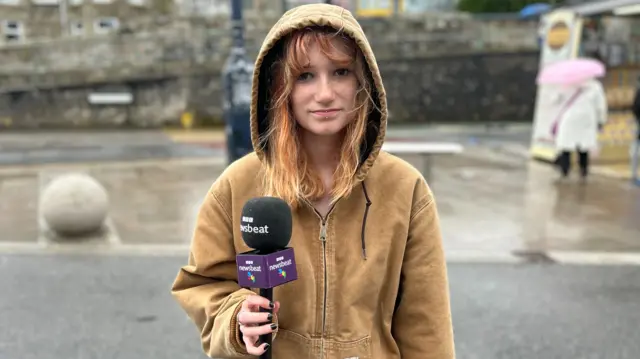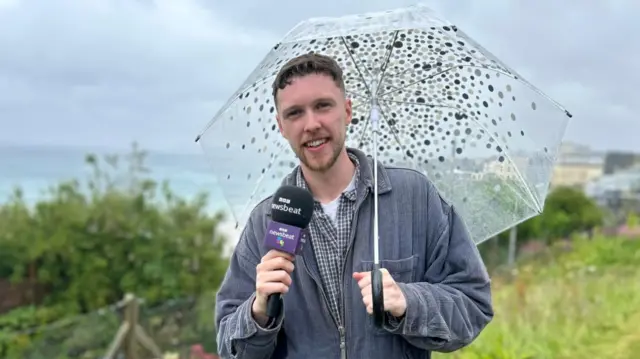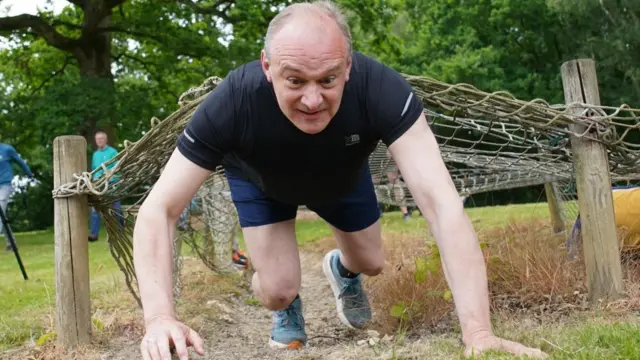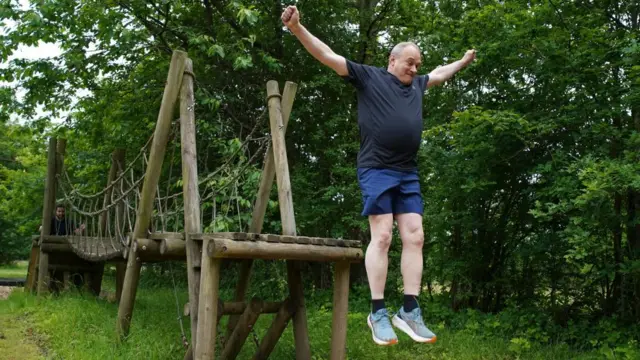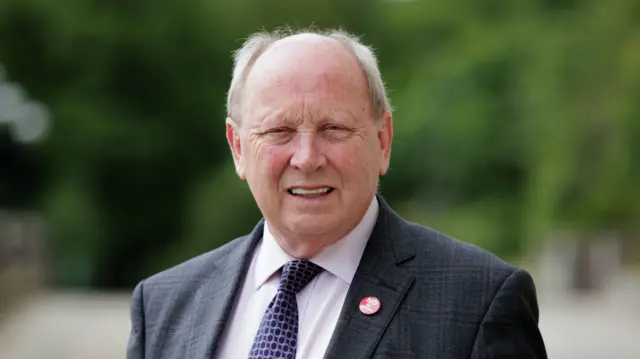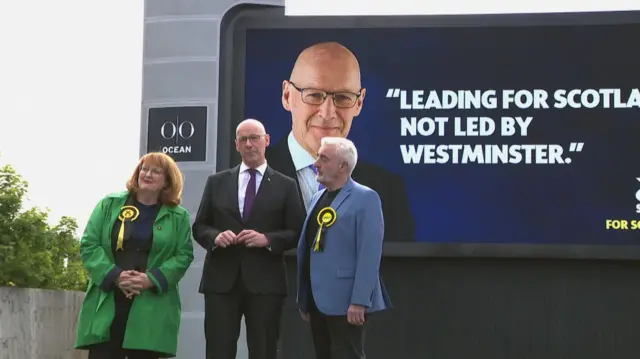'If you don't drive, there's nothing'published at 17:47 BST 13 June 2024
Scarlett Hutton
BBC Newsbeat, in Cornwall
In wet and windy Newquay, Dan says he’d like to see more investment in places like this during the winter.
In summer, people flock to Newquay's beaches and the Boardmasters festival - but come winter, Dan says it’s a completely different vibe.
He tells us: “That’s why I think there’s a drug problem here over seasonal changes. Summer’s super busy, but winter's kind of dead with nothing to do.”
Dan also says public transport is poor, meaning “if you don’t drive, there’s nothing - you can't get around."
That means traffic is a problem, and Dan doesn't "really fancy getting nearly run over by a car every five minutes".
You can listen to Race Across the UK on BBC Radio 1 and Radio 1Xtra here from 17:45 BST.

